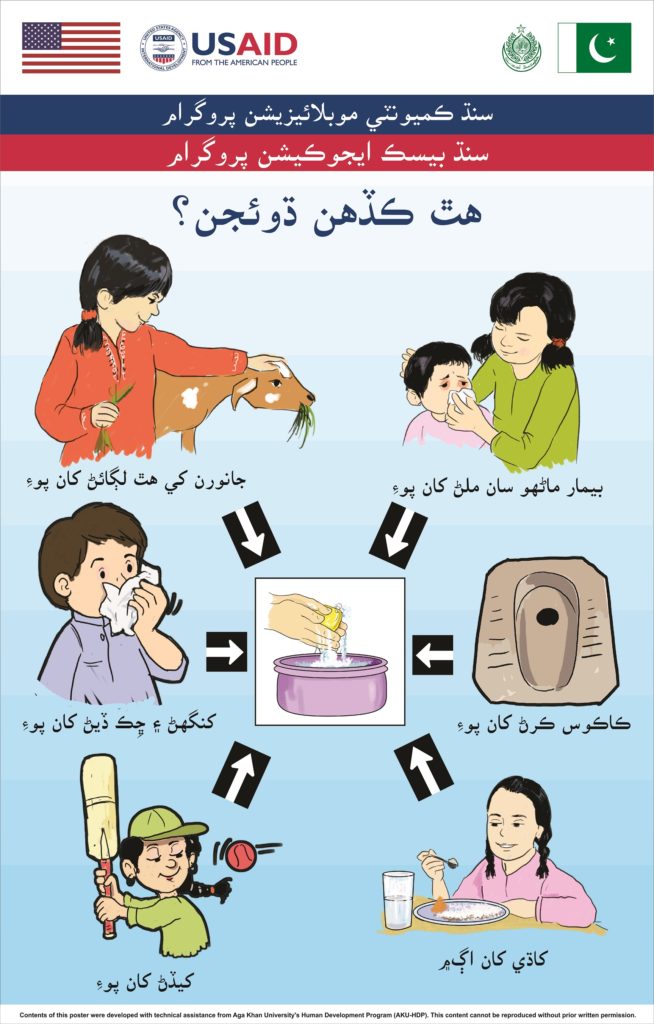It is obvious that proper hygiene (personal, domestic and environmental) is essential for physical and cognitive health. Despite its importance, inhabitants of Abdul Qadir Khoso village of Jacobabad district, like many others, were not fully aware and sensitized of this issue until Sindh Community Mobilization Program’s (CMP’s) activities.
There are three schools in this village—Government Boys’ High School (GBHS), Government Boys Primary School (GBPS) and Government Girls’ Primary School (GGPS), the first one a construction school and the latter two as neighboring schools—are part of CMP’s targeted schools.
At the time of baseline, Abdul Qadir village, with approximately 3,000 residents, was facing critical issues in lack of leadership and unity as well as unawareness about health and hygiene. CMP mobilized the community through a series of broad based meetings and formed three school health and nutrition committees (SHNCs)—one for each school—by involving local social activists. Once the SHNCs were formed, CMP invested in their capacity building regarding anthropometry screening, health, nutrition and hygiene. SHNC members were also trained to trickle down the knowledge to remaining community members. CMP provide information, education and communication (IEC) materials and also facilitated health and hygiene awareness sessions for students, conducted by SHNC members.

Hand washing awareness raising poster, which is part of the CMP-provided IEC materials promoting health and hygiene
As a result of increased knowledge and improved skills, community members spearheaded various initiatives to protect the environment and promote health-related positive behaviors among their community. Concurrently, SHNCs took proactive measures, such as assisting CMP team in screening children, referring malnourished children to neighboring health facilities for diagnosis and treatment and shifting community members’ perception toward children’s nutrition.
Once SHNC members conducted rollout sessions and students and parents were provided firsthand knowledge of health, nutrition and hygiene, it dramatically improved the attendance and attention of students in schools.
One SHNC member shared that, “It was the first time ever when I got an opportunity to attend any training with other male community members and enhanced my knowledge about health, nutrition and hygiene. Prior to that I failed to understand why my children frequently fall sick but now I can understand the reasons and take preventive measures.”
She further added that “being a parent it is our responsibility to ensure the personal hygiene of our children. By doing that we can not only prevent them from diseases but also save money, which we otherwise would have spent on their medicine.”
SHNC members appreciated CMP’s nutrition and hygiene related interventions and considered them high impact at no cost.
****
CMP is a USAID-funded program that supports the Government of Sindh’s education reform and USAID’s Sindh Basic Education Program. CMP improves school resources and encourages community support for educational reform in Sindh province while identifying and addressing primary barriers to access, particularly for female students.
RELATED READING:
Sindh Community Mobilization Program
School and Government Committees Collaborate to Treat Malnourished Children



